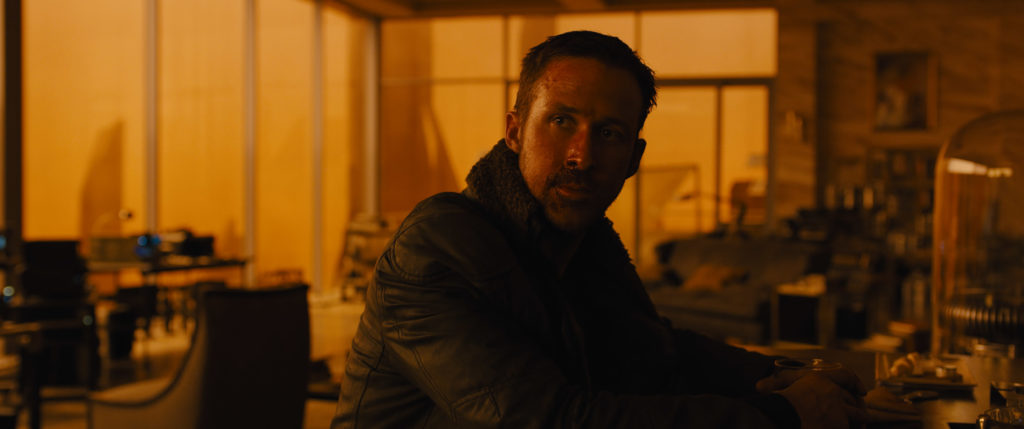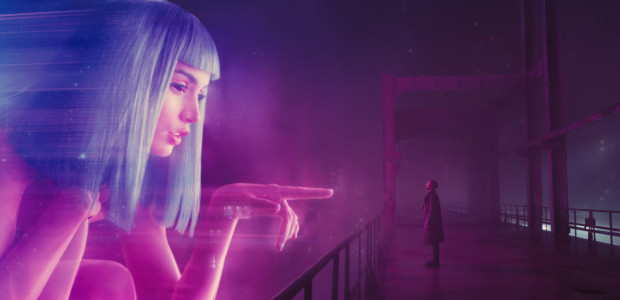BLADE RUNNER is a transcendent movie for me, one that I have grown to love more and more with every passing year of my life. There was a period where I would obsessively watch it multiple times a week—getting lost in the amazing production design and look of Ridley Scott’s film, letting the fantastic Vangelis score transport me to another time and place, and becoming utterly absorbed in the many levels of character and narrative that happened on screen. But I did not approach with any sort of high expectations—after all, you can never go home again and one can never step in the same river twice as so much changes over time. But I am a fan of the original and of Denis Villeneuve’s filmography, believing him to be one of the most thoughtful and deliberate filmmakers currently on the scene. So with tampered hopes of what this long in deliberation sequel could offer, I found myself enjoying the new movie, but it never hit the heights of either the original or of Villeneuve’s other works. Ultimately BLADE RUNNER 2049 is a good film that has many strong parts and aspects to it, but those parts never quite cohere to a greater whole that makes it as impactful as it could have been.
The new movie is set 30 years after the events of the original, with a new set of replicants walking the streets. The corporation headed by Niander Wallace (Jared Leto) designed these new skin jobs, including the protagonist, Officer K (Ryan Gosling). K is a blade runner who must hunt down rogue replicants for the LAPD, while careful measures are in place to ensure that he never goes off the reservation himself. He goes home to his virtual girlfriend Joi (Ana de Armas) and tries to simply keep his head down while performing his unfortunate tasks. When a case lands in his lap involving a possible, miraculous incident of a replicant giving birth, K soon finds himself in the cross hairs of many interested factions and must navigate a deadly maze in order to find the truth about himself, this mystery, and how an old blade runner named Deckard (Harrison Ford) fits into it all.
Villeneuve delivers a beautiful looking film that is a great expansion on the previous work by Ridley Scott, Syd Mead, and others. This new version of Los Angeles, much more inspired by favela chic than the high rises of the ’80s, is a gorgeous blend of the retro-futuristic and its own prognosis for where the future may be heading given changes in the world in the past 35 years. The architecture, fashion, and technology in this film feels like a natural progression from Scott’s while not being beholden to nostalgia. With the exception of plot elements, there are very few winking nods to the first film; more just small easter eggs for fans to notice and smile about, but nothing intrusive or overly smothering. Which is what makes the Deckard part of the storyline feel mostly out of place.

If this were simply another tale in the same universe, with maybe a line or two that references the previous story, it would be a much stronger film. As it is, the return of Deckard and his narrative feels awkward, not helped by Ford’s acting less like an aged, cynical detective and more like someone’s cranky grandpa. It makes sense to include Ford and that storyline from a few perspectives—most of them business and fan oriented—but it robs a lot of the propulsion of the film with these callbacks to an earlier adventure. Much like THE FORCE AWAKENS, it’s the moments of something new and different that are the most compelling, with the familiar retreads slowing down what would otherwise be an engrossing movie.
But again, BLADE RUNNER 2049 is a good movie, it’s fun and intriguing and beautiful to behold. Gosling is great as the enigmatic K, trying to forge his own life while essentially being a race traitor for the government. His interactions with de Armas are heartbreaking and entertaining, and the actress shines in her role as the only real lifeline K has to true emotions. In fact, all of the acting (with the possible exception of Ford) is great. In particular, the women of BLADE RUNNER 2049 are stellar across the board—Robin Wright’s Lieutenant, Mackenzie Davis’ pleasure synth, Sylvia Hoeks as Wallace’s right hand—are all memorable and fascinating characters that seem fully fleshed out and are compelling to watch onscreen.
The other issue with BLADE RUNNER 2049, besides its sloppy adherence to the first film, is that it feels like the subtext of the first film has now been made into literal text. While the first film’s ambiguity around its themes—civil rights, man’s relationship with his Creator, police brutality, corporate personhood, etc.—propelled it to being discussed and dissected for decades after its release, this movie now has the themes much more broadly stated and observed, with repeated metaphors (especially by Jared Leto) of angels and slaves and whatnot being spoken outright by the characters. Though it should be praised that one of the central mysteries of the original BLADE RUNNER is still left as a mystery when the credits for this film roll.
In the end, people should see BLADE RUNNER 2049 as it is a sumptuous treat for the senses. Villeneuve, even at his weakest, is still a commanding filmmaker that makes truly arresting work that lingers in the mind. And the director does an impressive job of slipping into Ridley Scott’s skin to produce a film that feels part of the natural cloth of BLADE RUNNER. It’s hampered by a lack of ambiguity and being beholden to including much of what came before. BLADE RUNNER 2049 isn’t as much of a singular experience as Scott’s movie—by definition, it couldn’t be—but it is still an enjoyable and absorbing film in its own right.
Tags: Ana de Armas, Barkhad Abdi, Benjamin Wallfisch, Carla Juri, Dave Bautista, David Dastmalchian, Denis Villeneuve, Edward James Olmos, Hampton Fancher, Hans Zimmer, harrison ford, Jared Leto, Joe Walker, Jóhann Jóhannsson, Lennie James, Los Angeles, Mackenzie Davis, Michael Green, Philip K. Dick, Ridley Scott, Robin Wright, Roger Deakins, Ryan Gosling, Sci-Fi, Sean Young, Sylvia Hoeks, The Future, Wood Harris



No Comments